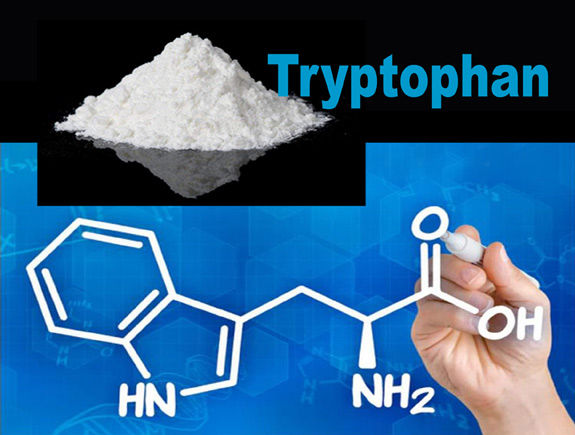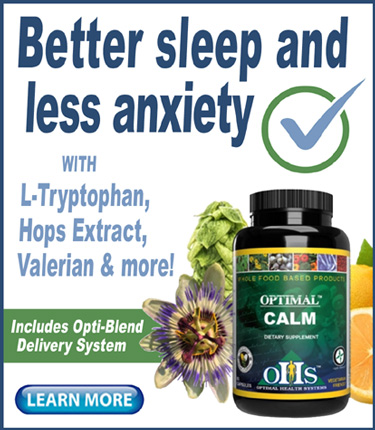A new Spanish study focusing on first-year university students has found that lower tryptophan consumption is associated with poor sleep quality.
Tryptophan is an amino acid that is used by the human body in the biosynthesis of proteins. As an essential amino acid it is vital to the body, but is not made by the body; therefore, it must be supplied from dietary sources.
Tryptophan is found in liberal amounts in seeds, nuts, soybeans, quinoa, fish, turkey and beef. It is also found in lower quantities in numerous other foods—including dairy, eggs, oats, wheat and chicken.
Though tryptophan is readily available in all the aforementioned foods, it is not stored for long periods in the body. In fact, tryptophan has the lowest concentration in the body among all the amino acids.
Tryptophan is utilized in the production of melatonin and serotonin—two hormones that are involved in sleep regulation.
Study details
The new study was part of the uniHcos Project—a collaboration by 11 Spanish universities. The uniHcos Project was launched to better understand the lifestyle habits of students entering university and how they change over time.
To conduct the cross-sectional study researchers analyzed data on 11,485 first-year university students. The average age of the study participants was 20 year old.
Researchers provided an online questionnaire so the students could self-report their sleep habits. This included questions about how long they slept, sleep efficiency—including whether or not they got the rest they needed—and any early waking and periods of insomnia.
They also collected data on the students’ diet, and utilized a food matrix to assess their tryptophan consumption.
Tryptophan benefits
• Supports sleep quality
• Reduces PMS symptoms
• Fights anxiety & depression
• Helps suppress appetite
• Improves exercise performance
• Provides eye protection
• Chronic headache relief
• Helps overcome addiction
Findings indicated that more than half of the students met the clinical standards of suffering from sleep issues. This amount is higher than that observed in most other countries.
Tryptophan consumption was high. The researchers found median intakes were over twice the estimated daily requirement for both male (2.27 times) and female (2.60 times) students.
They also found that students who consumed the most dietary tryptophan had a reduced risk of sleep disorders compared to those in the lowest quartile.
In addition, dietary tryptophan was positively associated with sleep duration, sleep efficiency and lower levels of insomnia.
“Our results demonstrate the potential benefits of tryptophan intake for sleep improvement. Furthermore, sleep duration partially mediated this association. The findings from this extensive study support the potential benefit of tryptophan intake in the prevention and management of sleep issues, likely due to its positive effects on sleep quality,” the researchers wrote in the study conclusion.
The researchers also noted that sleep health is complex and single factors like tryptophan intake might not tell the whole story. This facts was acknowledged as one of the limitations of the study, and that more studies would be needed to corroborate the findings.
By way of example, the researchers cited stress and social life as factors that greatly affect sleep, and since they are two common factors relative to college students, they would need to be adjusted-for in a quality study.
The study was published in Nutrients in July 2024.
Sleep epidemic
Young people are not the only group to see an increase in sleep disorders. At a minimum, unhealthy sleep patterns are a worldwide health challenge; however, to many experts, the world is already in the midst of a sleep epidemic.
As early as 2012 a study, Sleep Problems: An Emerging Global Epidemic? was published in the journal Sleep. In 2018, an Indian study, The Global Problem of Insufficient Sleep and Its Serious Public Heath Implications was published in the journal Healthcare.
In 2021 a U.S. study determined approximately 14 million Americans suffer from sleep disorders.
The researchers, writing in Journal of Clinical Sleep Medicine, reported that sleep disorders are associated with significantly higher rates of health care utilization—and estimated an additional $94.9 billion in costs were added to the U.S. healthcare system each year.
The higher costs were due primarily to frequency of doctor visits and prescriptions. Patients with sleep disorders attended more than 16 office visits and nearly 40 medication prescriptions per year—compared to an average of 9 visits and 22 prescriptions for those without a sleep disorder.
– – –
Tryptophan is part of the proprietary formula in Optimal Calm from Optimal Health Systems. Click the banner ad on this page to learn more.
– – –
Primary source: Nutrients.


